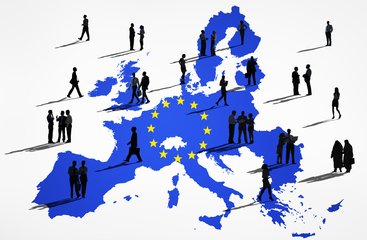Regulation
EU Legislation
Materials and products in contact with drinking water are regulated through different EU legislations.
Harmonization Activities
In addition to the national regulatory authorities, who implement the EU regulation in the respective Member State, voluntary initiatives between some Member States have developed to deal with the harmonization of national requirements for products in contact with drinking water.
More see "Current Situation".
Drinking Water Directive (DWD)
The Drinking Water Directive (DWD) (Directive 98/83/EC) aims to protect human health from potential dangers arising from the quality of drinking water and to ensure that drinking water is wholesome and clean. It applies to fixed public or private water supply equipment, while it does not apply to bottled water that is covered by the Food Contact Materials (FCMs) Framework Regulation (Regulation No 1935/2004) and related EU or national FCM legislation.
Article 10 of the Drinking Water Directive concerns materials and articles in contact with drinking water: it states that
“Member States shall take all measures necessary to ensure that no substances or materials for new installations used in the preparation or distribution of water intended for human consumption or impurities associated with such substances or materials for new installations remain in water intended for human consumption in concentrations higher than is necessary for the purpose of their use and do not, either directly or indirectly, reduce the protection of human health provided for in this Directive”
By delegating the competence on materials and articles in contact with drinking water to individual Member States, art. 10 of the Drinking Water Directive has led to the proliferation of national regulations and to the lack of harmonised standards.
The Drinking Water Directive was under review: the Commission evaluation report, published in December 2016, recognised that the art. 10 has led to the proliferation of different national certification systems leading to technical barriers to trade, unnecessary burden for the industry and increasing disparities between national standards on materials and articles in contact with drinking water. As a result of this review, the Commission published a proposal for a revised Drinking Water Directive.
See "Current Situation".
Construction Products Regulation (CPR)

The Construction Product Regulation (Regulation (EU) No 305/2011) lays down harmonised rules for the marketing of construction products in the EU. One of its main objectives is to ensure the free movement of construction products across the EU’s Single Market.
It sets out the rules for confirmation on of the suitability of products for installation in buildings and other construction works, in order to ensure protection of the safety of the users, health, hygiene and the environment, as well as durability and sustainability. The suitability must be confirmed by compliance with harmonized product standards, appropriate to the end use, as identified by the manufacturer.
This legislation is therefore intended to improve the circulation of such products within the internal market, through the elaboration of harmonised requirements and testing methodologies (European standard or European Assessment Document). Products complying with the requirements set by European standards can then get a CE-marking enabling them to be marketed across all EU Member States.
The Construction Products Regulation (CPR) should also cover construction products in contact with drinking water. Unfortunately, whilst work on standardisation for “supporting standards” (test methods) has been completed, development of “harmonised product standards" has been prevented due to lack of regulatory guidance under the CPR preventing CE marking in respect of suitability for contact with drinking water.
Mutual Recognition Regulation

The principle of mutual recognition is at the heart of the EU internal market. It applies to products that are not subject to EU harmonised rules, such as articles and materials in contact with drinking water.
The main objective of the mutual recognition principle is to ensure that national technical rules do not hinder the free circulation of goods within the EU.
Under the principle of mutual recognition, one Member State “cannot prohibit the sale in its territory of goods which are lawfully produced and/or marketed in another Member State”.
Only one exception to this principle is allowed: a Member State can adopt a technical rule restricting the import of products lawfully produced or marketed in other Member States if it can prove that this is needed to protect public morality, public security, health and environment (art. 36 – Treaty on the Functioning of the European Union).
Regulation No 764/2008 aims at ensuring a correct application of the mutual recognition principle by Member States by clarifying the procedures under which Member States Competent Authorities can deny market access to a product lawfully produced or marketed in other Member States. By imposing strict requirements for Member States invoking the exception to the mutual recognition principle, this regulation should lead to an improved functioning of the internal market. However, the Commission acknowledged in its review of the Drinking Water Directive that “the mutual recognition principle is only rarely admitted” with regards to materials and articles in contact with drinking water. This is the result of the proliferation of several partially contradictory and incompatible national schemes leading to a fragmentation of the EU internal market.
